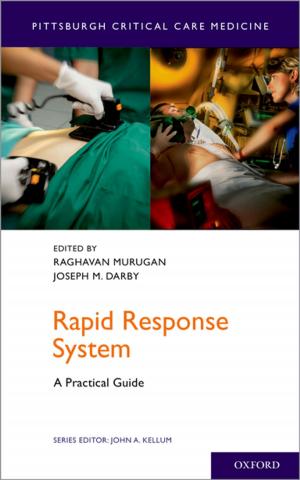The Rise and Fall of Al-Qaeda
Nonfiction, Social & Cultural Studies, Political Science, International, International Security| Author: | Fawaz A. Gerges | ISBN: | 9780199911714 |
| Publisher: | Oxford University Press | Publication: | September 14, 2011 |
| Imprint: | Oxford University Press | Language: | English |
| Author: | Fawaz A. Gerges |
| ISBN: | 9780199911714 |
| Publisher: | Oxford University Press |
| Publication: | September 14, 2011 |
| Imprint: | Oxford University Press |
| Language: | English |
In this concise and fascinating book, Fawaz A. Gerges argues that Al-Qaeda has degenerated into a fractured, marginal body kept alive largely by the self-serving anti-terrorist bureaucracy it helped to spawn. In The Rise and Fall of Al-Qaeda, Gerges, a public intellectual known widely for his expertise on radical ideologies, including jihadism, argues that the Western powers have become mired in a "terrorism narrative," stemming from the mistaken belief that America is in danger of a devastating attack by a crippled al-Qaeda. To explain why al-Qaeda is no longer a threat, he provides a briskly written history of the organization, showing its emergence from the disintegrating local jihadist movements of the mid-1990s-not just the Afghan resistance of the 1980s, as many believe-in "a desperate effort to rescue a sinking ship by altering its course." During this period, Gerges interviewed many jihadis, gaining a first-hand view of the movement that bin Laden tried to reshape by internationalizing it. Gerges reveals that transnational jihad has attracted but a small minority within the Arab world and possesses no viable social and popular base. Furthermore, he shows that the attacks of September 11, 2001, were a major miscalculation--no "river" of fighters flooded from Arab countries to defend al-Qaeda in Afghanistan, as bin Laden expected. The democratic revolutions that swept the Middle East in early 2011 show that al-Qaeda today is a non-entity which exercises no influence over Arabs' political life. Gerges shows that there is a link between the new phenomenon of homegrown extremism in Western societies and the war on terror, particularly in Afghanistan-Pakistan, and that homegrown terror exposes the structural weakness, not strength, of bin Laden's al-Qaeda. Gerges concludes that the movement has splintered into feuding factions, neutralizing itself more effectively than any Predator drone. Forceful, incisive, and written with extensive inside knowledge, this book will alter the debate on global terrorism.
In this concise and fascinating book, Fawaz A. Gerges argues that Al-Qaeda has degenerated into a fractured, marginal body kept alive largely by the self-serving anti-terrorist bureaucracy it helped to spawn. In The Rise and Fall of Al-Qaeda, Gerges, a public intellectual known widely for his expertise on radical ideologies, including jihadism, argues that the Western powers have become mired in a "terrorism narrative," stemming from the mistaken belief that America is in danger of a devastating attack by a crippled al-Qaeda. To explain why al-Qaeda is no longer a threat, he provides a briskly written history of the organization, showing its emergence from the disintegrating local jihadist movements of the mid-1990s-not just the Afghan resistance of the 1980s, as many believe-in "a desperate effort to rescue a sinking ship by altering its course." During this period, Gerges interviewed many jihadis, gaining a first-hand view of the movement that bin Laden tried to reshape by internationalizing it. Gerges reveals that transnational jihad has attracted but a small minority within the Arab world and possesses no viable social and popular base. Furthermore, he shows that the attacks of September 11, 2001, were a major miscalculation--no "river" of fighters flooded from Arab countries to defend al-Qaeda in Afghanistan, as bin Laden expected. The democratic revolutions that swept the Middle East in early 2011 show that al-Qaeda today is a non-entity which exercises no influence over Arabs' political life. Gerges shows that there is a link between the new phenomenon of homegrown extremism in Western societies and the war on terror, particularly in Afghanistan-Pakistan, and that homegrown terror exposes the structural weakness, not strength, of bin Laden's al-Qaeda. Gerges concludes that the movement has splintered into feuding factions, neutralizing itself more effectively than any Predator drone. Forceful, incisive, and written with extensive inside knowledge, this book will alter the debate on global terrorism.















